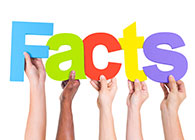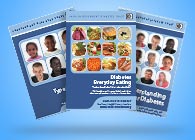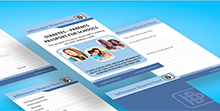Registering as Partially Sighted or Blind
Registering as Partially Sighted or Blind
Diagnosis of retinopathy, or any sight threatening conditionAs we all know, sight is probably one of the most important of the 5 senses that we have and any threat to this is frightening. We all know that retinopathy is one of the complications of diabetes but knowing this is a risk and actually having it diagnosed are totally different things, especially if the diagnosis is of proliferative retinopathy that can threaten sight. Knowing the risk does not prevent the shock of diagnosis, the denial [this can’t be happening to me, the anger, the feelings of guilt perhaps for past indiscretions with food, drink, blood sugar control or the ‘why me?’ feelings. Nor does it prevent the panic at the possibility of changes in lifestyle – just the simple thing of losing your driving licence can mean having to take a whole new look at your life and/or work and that of your family. Perhaps at this stage it is important to remember that early diagnosis and treatment of retinopathy can slow down it’s progression. It is also important to remember that achieving better diabetic control may also slow down the progression. Nevertheless, diagnosis itself can bring about this range of feelings but for the vast majority of people in this situation, there is time to adjust to the diagnosis and to adjust to perhaps looking at the future differently.
Depressing, but maybe we need to take a look…
Understandably some people do not want to read about the complications diabetes because it is upsetting and depressing – perhaps especially those that may affect sight. But the reality is that there are many people already with retinopathy and we cannot ignore their needs – they and their family carers need information and reassurances that there is help available to them. Perhaps by looking at the help and support that is available to people who are partially sighted or blind, it may even help to allay some of the fears we all have.
Registration as partially sighted or blind
Registering is a big step and it may feel like the biggest step you have ever taken. Emotionally it means admitting that you have sight problems that are making your life difficult, but registration could provide you with just the help that you need. If you are in this situation, you may have thought about registering but don’t know what the benefits are or where to start. We hope that this article will give you the confidence to seek the help you need.
What is registration?
- It is entirely voluntary.
- It entitles you to certain benefits and makes it more likely that you will receive the help you need.
- Your local authority keeps a register of blind and partially sighted people in your area. The register is held by the Social Services department or the local voluntary society for the visually impaired acting as an agency for your local authority. Whoever keeps the register it is important to know that it is entirely confidential.
- The purpose of the register is to help local authorities provide people with what they need and are entitled to.
How you register – the first step
If you are under an eye specialist [ophthalmologist] at the hospital then you should speak to him/her to see if your sight makes you eligible for registration. Your eye specialist will certificate you as partially sighted or blind. You should also discuss this with you GP who can refer you for further help.
What are the benefits for you in registering?
Naturally if you are considering registering as partially sighted, you need to know what the advantages are from doing so. You may be entitled to more than you think. There are several main agencies involved that can give you help in all sorts of areas and we are providing some of the details for you.
Benefit agencies
tel: 0845 882 200
Disability Living Allowance
[DLA], claimed before 65th birthday and Attendance Allowance, claimed after the age of 65. These are available to partially sighted and blind people. They help with personal care and mobility.
Additional Income Support
If applicable, is available to partially sighted and blind people
Additional Housing Benefit, Council Tax Benefit or both
Available for both visually impaired and blind people
Incapacity Benefit
Again this applies to visually impaired and blind people and it concerns people who are of working age but are incapable of work.
Social services
Contact your local office
Community Care Services assistance from your local Council
Available for both blind and partially sighted people and includes home help, mobility training, home adaptation or counselling etc.
Help towards residential or nursing home fees
Available for blind and visually impaired people and can provide financial help towards care.
Car Parking Concessions
Available to the blind only – the car does not have to be yours.
Additional Range of concessions that may be available to you:
- Special equipment, a reader or assistance at work
- Railcard and other travel concessions
- Help with telephone installation charges and line rental
- Exemptions from BT Directory Enquiry charges
- Free postage on items marked ‘articles fore the blind’
- Free permanent loans of radios, cassette players and TV sound receivers
The RNIB [Royal National Institute of Blind People]
105 Judd Street
London
WC1H 9NE
helpline: 0303 123 9999
website: www.rnib.org.uk
The RNIB can offer general and information about practical help that may be available to you. IDDT has made contact with the RNIB [Royal National Institute for the Blind] and arranged for any of their information leaflets to be available to you through IDDT. They have large print leaflets to suit the needs of people with visual impairment covering issues such as available financial benefits and products that can improve your quality of life. The RNIB provides a range of leaflets about benefits, services, practical information as well as help with coming to terms with sight loss.




































